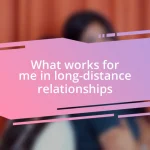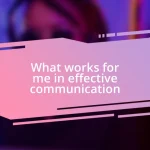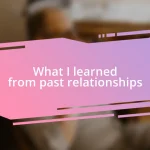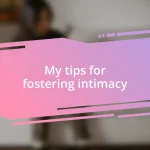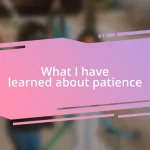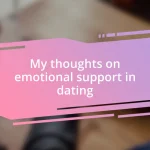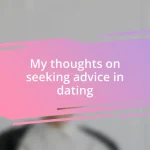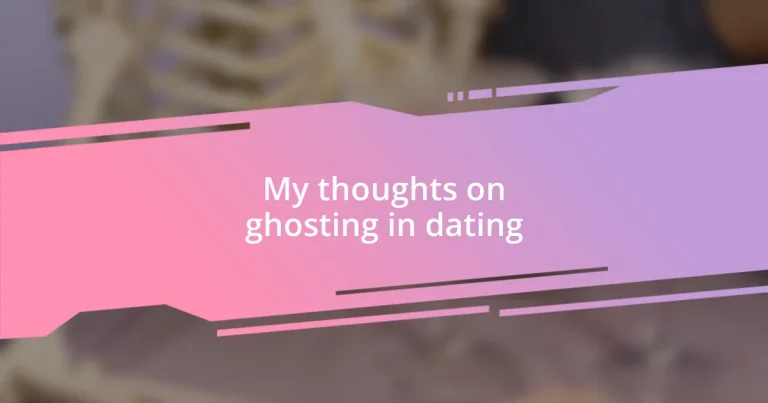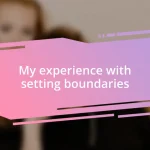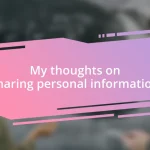Key takeaways:
- Ghosting leads to confusion and self-doubt, highlighting the emotional toll of modern dating.
- Common reasons for ghosting include fear of confrontation, lack of interest, and personal issues.
- Clear communication and setting boundaries are essential strategies to prevent ghosting and foster healthy relationships.
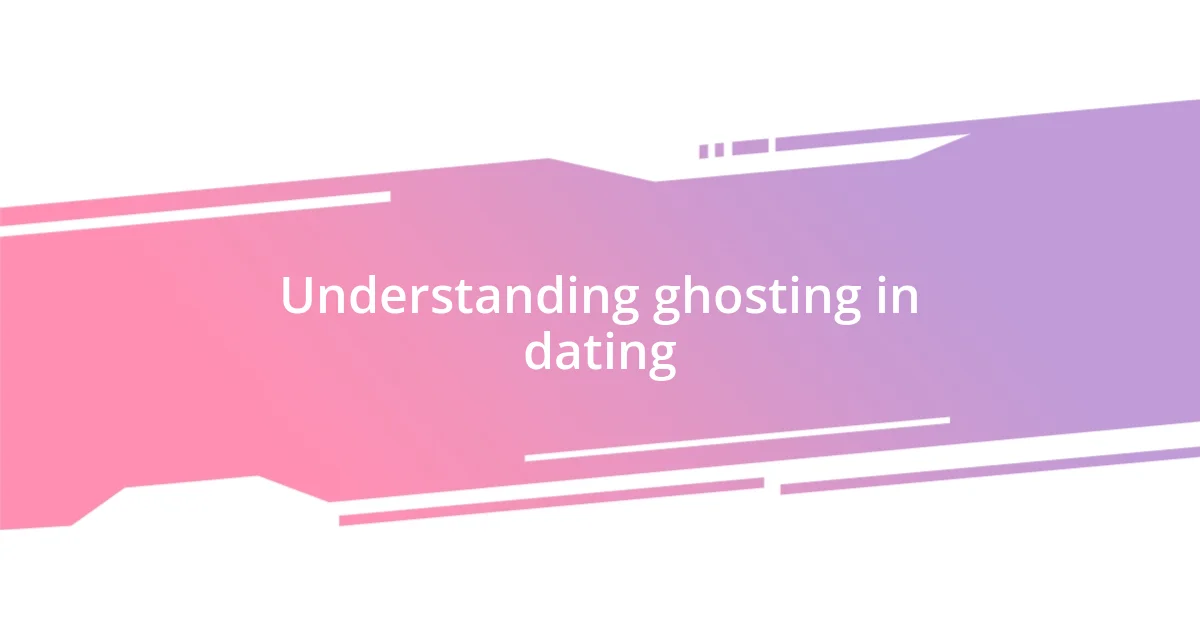
Understanding ghosting in dating
Ghosting in dating can feel like a sudden silence that leaves you questioning everything. I remember a time when I was really excited about someone, only to have them vanish without a trace. It’s confusing, isn’t it? You find yourself replaying conversations, wondering if you missed the signs or if you did something wrong.
I’ve seen ghosting become more prevalent, especially with the rise of dating apps, where connections can feel more transient. It’s as if people see each other as disposable. This shift makes me ponder: has technology eroded our ability to communicate openly? The emotional toll can be significant, leaving one person feeling rejected while the other simply fades away without clarity.
There’s something disheartening about being ghosted; it underscores a lack of respect for the emotional investment involved. I’ve heard stories of friends who were ghosted after seemingly wonderful dates, and these experiences often lead to self-doubt. Have you ever experienced that mix of confusion and frustration when someone you thought genuinely connected with you just disappears? It’s a tough pill to swallow, highlighting not just the whims of modern dating but also the importance of understanding our emotional boundaries.
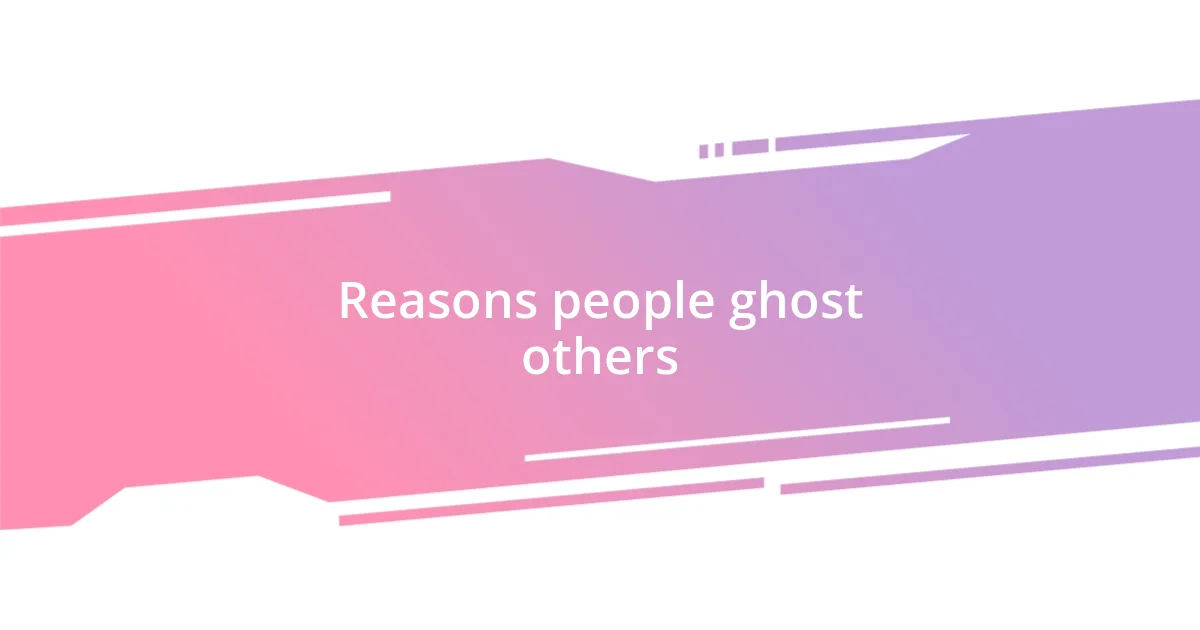
Reasons people ghost others
When it comes to ghosting, I’ve noticed a few key reasons people vanish from conversations. Often, they’re simply overwhelmed by their own personal issues—be it mental health struggles, stress from work, or even just feeling unready for a relationship. In my own experiences, I’ve been on both sides. I’ve ghosted someone when I realized I wasn’t in the right headspace to give them the attention they deserved. Conversely, I’ve been left in the dark, questioning what went wrong, which can be deeply hurtful.
Here are some common reasons people choose to ghost:
- Fear of confrontation: A lot of people dislike the discomfort that comes with ending things directly, so they opt out instead.
- Lack of interest: Sometimes, the excitement fades, and rather than just being upfront, they slip away quietly.
- Overwhelm: Dating can be tiring, and individuals might ghost when they feel emotionally or mentally drained.
- Comparative options: With so many potential matches at their fingertips, some might think, “There’s always someone better.”
- Personal issues: As I mentioned, life can be messy, and if someone is dealing with personal turmoil, they might withdraw entirely.
I believe these underlying motivations often go unnoticed, but they play a crucial role in understanding this modern dating phenomenon.
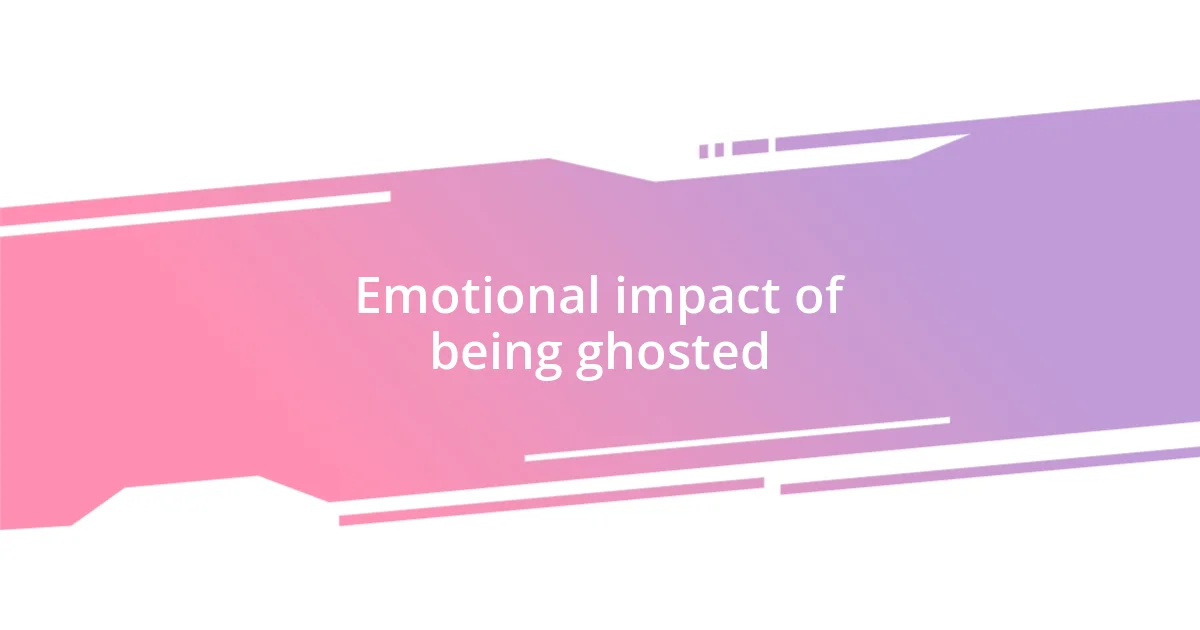
Emotional impact of being ghosted
The emotional impact of being ghosted can resonate deeply, often leading to a whirlwind of feelings like confusion and rejection. I remember how I felt when someone I saw frequently just stopped replying—they seemed to vanish into thin air. It was eye-opening to realize how much weight we put on these connections, and how their sudden end can feel like a mini heartbreak.
Moreover, the aftermath of being ghosted can stir up feelings of inadequacy. I used to wonder if there was something inherently wrong with me. Friends of mine have shared similar stories, where their self-esteem took a hit after being ghosted, making dating again feel daunting. It’s interesting how a single act—someone disappearing—can leave lasting scars on our emotional landscape.
Interestingly, ghosting doesn’t just affect the person who is ghosted; it often creates a ripple effect on how we perceive relationships and trust. Following my experience, I became more guarded, hesitant to really open up. This pattern of behavior can spiral, perpetuating a cycle of fear and isolation. It’s essential to recognize these feelings to heal and navigate future connections with greater awareness.
| Emotional Impact | Resulting Feelings |
|---|---|
| Confusion | Wondering what went wrong |
| Rejection | Decreased self-esteem |
| Loneliness | Longing for clarity and connection |
| Guardedness | Hesitation to invest in new relationships |
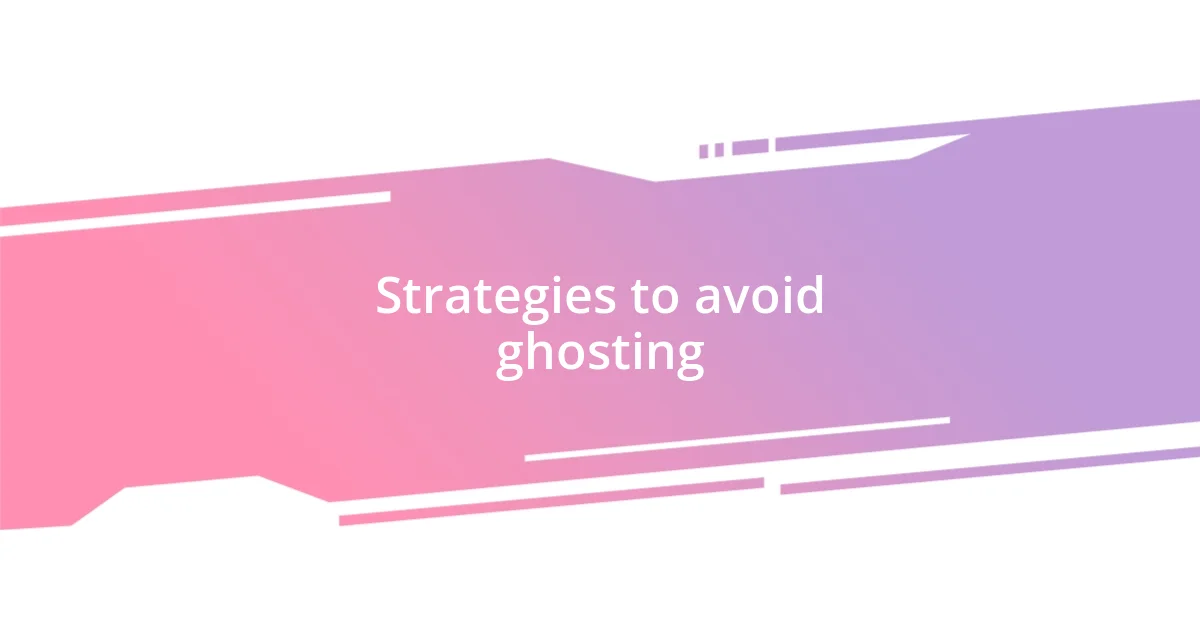
Strategies to avoid ghosting
To avoid being ghosted, clear communication is key. I’ve learned that being open about feelings and intentions sets the stage for honest interactions. When I found myself unsure about a budding relationship, I initiated a simple conversation where I openly shared my thoughts. It allowed both of us to align our expectations and eased my anxiety about potential misunderstandings.
Another effective strategy I’ve observed is establishing mutual check-ins throughout the dating process. Ask questions like, “How are you feeling about us?” This not only keeps the dialogue flowing but can also preemptively address any concerns before they escalate. I remember doing this once, and it transformed an uncertain dynamic into a more robust connection. It’s a way of ensuring we’re both on the same page, fostering trust along the way.
Lastly, I’ve discovered the importance of taking things slow. In this fast-paced dating culture, we often rush in without really knowing each other. By savoring the early stages, I’ve found it easier to build genuine connections. Trust develops when you allow time for a relationship to blossom organically, which can significantly reduce the chances of someone disappearing unexpectedly. Wouldn’t you agree that building a solid foundation makes a difference?
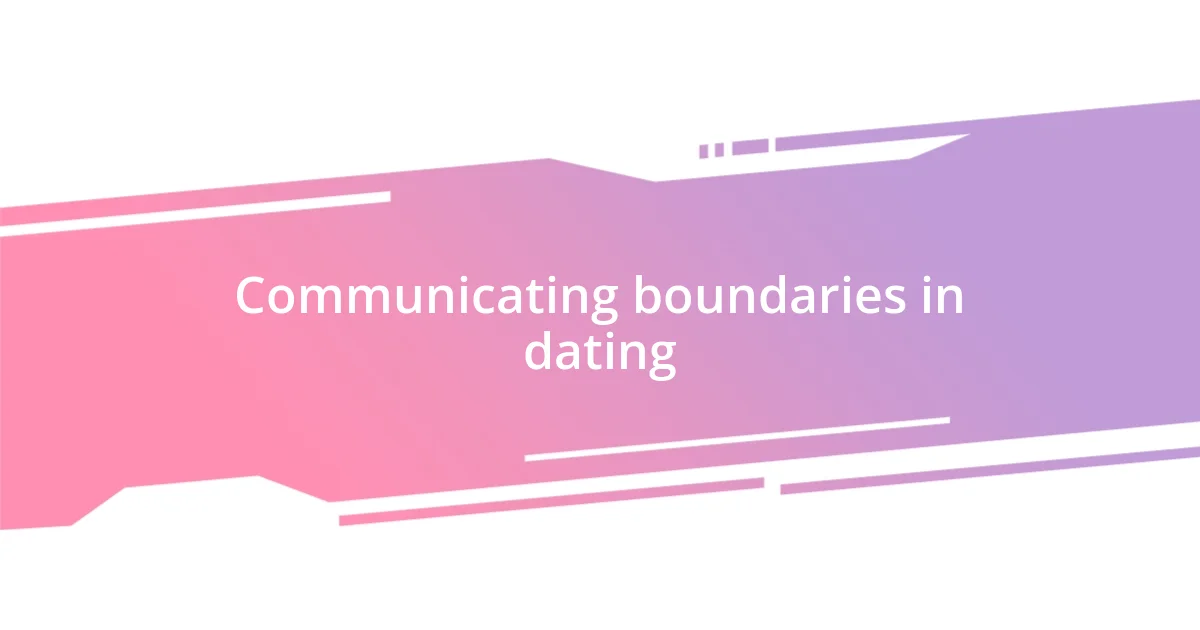
Communicating boundaries in dating
Setting clear boundaries in dating is essential for creating a healthy dynamic. I remember a time when I was getting to know someone new, and we both discussed what we were looking for. Being upfront about our expectations not only eased our anxieties but also fostered a sense of safety in the budding relationship. Don’t you think having those honest conversations can be a game changer?
It’s surprising how often people shy away from discussing boundaries, thinking it might scare the other person off. I used to worry about this myself, but, in reality, I found that being transparent about my boundaries helped both of us feel more secure. One evening, over coffee, I shared my need for open communication, and to my relief, my date reciprocated. That moment felt like a breath of fresh air!
Additionally, it’s crucial to revisit these boundaries as the relationship evolves. Just because you set rules at the beginning doesn’t mean they can’t change. I recall a couple of instances where I needed to adjust my boundaries as I became more comfortable. I’ve learned that asking, “Are you still comfortable with where we’re at?” can strengthen a connection. It’s like nurturing a plant; regular care and attention ensure it thrives, don’t you think?
